29 Reasons Why Older Couples Are Choosing To Split
In a world where we often believe that love stands the test of time without faltering, the reality can be startling. Even the longest relationships, those we assume are rock-solid, sometimes unravel in the later years.
What causes this phenomenon? Why do partnerships that have endured decades suddenly find themselves at a crossroads?
Let’s look beyond the surface and explore the subtle and sometimes unexpected factors that contribute to the dissolution of long-term relationships.
From unspoken resentments to shifting identities, the reasons are as diverse as the couples themselves. Here are 29 insightful reasons why older couples are choosing to end their journey together.
1. Growing Apart Over Time
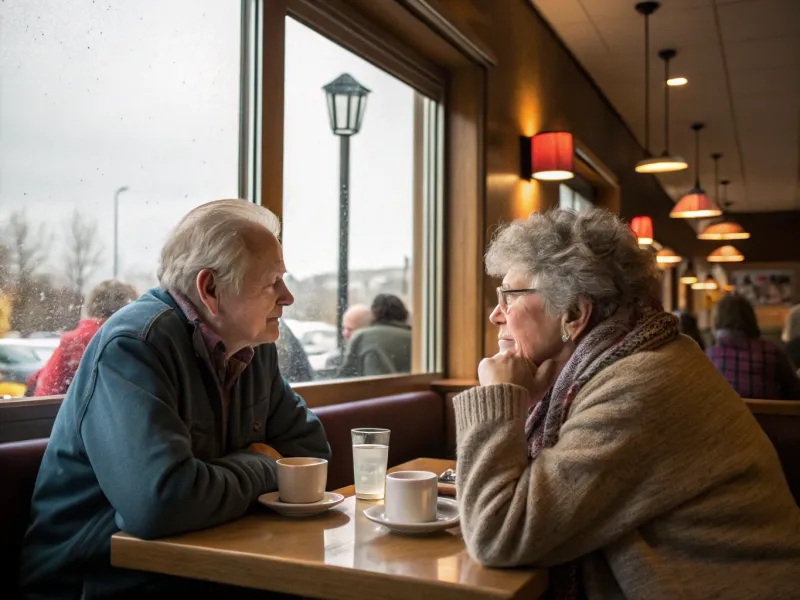
Over the years, couples may find themselves growing apart, even if they started with shared dreams and goals. Imagine sharing a life with someone for decades, only to realize that the paths you once walked together have forked. This isn’t about blame but about recognizing that people evolve. Sometimes, interests change, and what once bonded you may no longer resonate.
Picture this: You spend years engrossed in raising children, building careers, and maintaining a household. Then, as life settles, there’s a pause—a moment to reflect. In that stillness, you might discover that the person beside you is more of a stranger than a companion. The realization can be both enlightening and painful.
This gradual drifting apart often goes unnoticed until a pivotal moment. It’s not a sudden break, but rather a slow erosion of connection, leading to questions about compatibility and shared futures. When the realization dawns, decisions must be made, often resulting in a heart-wrenching choice to part ways, seeking fulfillment elsewhere.
2. Late-Life Identity Shifts

In our later years, we often undergo profound shifts in identity, driven by experiences and reflections. It’s a time many describe as liberating, where you explore paths you never considered before. But what happens when these changes clash with the life you’ve built with your partner?
Consider how retirement or the empty nest stage offers space to rediscover personal passions. Suddenly, you’re no longer defined by your roles as a worker or parent. This newfound clarity might lead you to pursue dreams that differ from your partner’s, creating a chasm in the relationship.
While personal growth is enriching, it can also be isolating if your partner isn’t evolving in tandem. These shifts can lead to a deeper understanding of oneself but may inadvertently highlight differences that were once overlooked. As individuals seek authenticity, they may choose to follow their paths, sometimes apart from the ones they’ve loved for years.
3. Unspoken Resentment
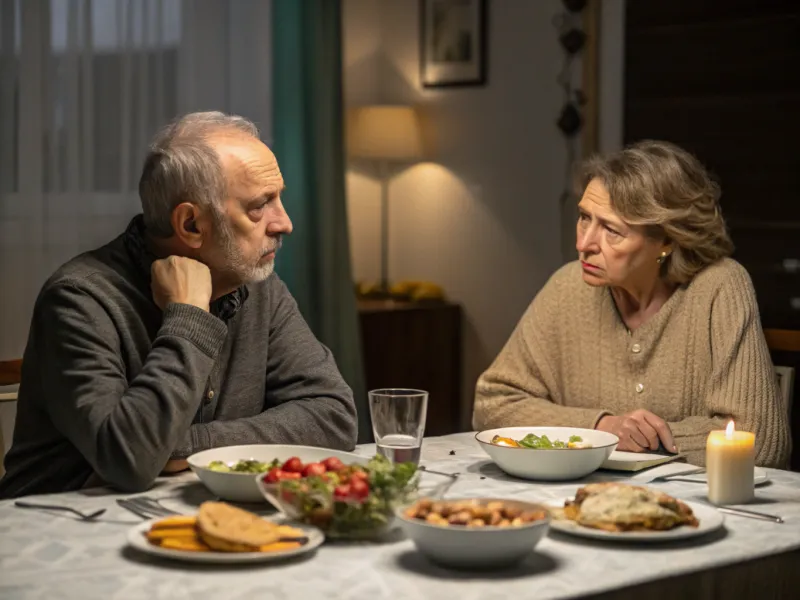
Resentment is a silent force that can gradually erode the foundation of a relationship. Over the years, unspoken grievances accumulate, often stemming from unmet needs or expectations. It’s like a quiet storm brewing beneath the surface, unnoticed until it reaches a tipping point.
Imagine feeling unheard or undervalued for decades. Perhaps it’s about sacrifices that went unacknowledged or dreams that were sidelined. When these feelings aren’t addressed, they fester, leading to emotional distance and bitterness.
Confronting these issues requires vulnerability and a willingness to change. But after so many years, the effort might seem insurmountable. For some, the choice to leave becomes a path to self-preservation, allowing them to escape the weight of unspoken resentment and seek a fresh start.
4. Infidelity

Infidelity can fracture even the most enduring relationships. The discovery of an affair often brings a whirlwind of emotions—betrayal, anger, and deep hurt. It’s a moment that redefines trust, leaving both parties to grapple with the aftermath.
One might wonder why infidelity occurs in long-term relationships. Sometimes, it’s about unmet emotional needs or desires for validation that are sought outside the marriage. Other times, it’s simply an unfortunate lapse in judgment, a mistake that spirals out of control.
Rebuilding trust is a Herculean task, requiring transparency and commitment from both partners. Some couples choose to confront these challenges, finding ways to heal together. However, for others, the breach is too deep, leading to separation as the only viable option to mend their fractured hearts.
5. Financial Disagreements

Money matters can be a significant source of tension in relationships, and this doesn’t dissipate with age. In fact, financial disagreements often intensify as couples face retirement, healthcare costs, and legacy planning.
One partner might focus on saving for legacy, while the other wishes to enjoy the fruits of their labor through travel or hobbies. These differing perspectives can lead to arguments and resentment, straining the relationship.
Resolving financial conflicts requires open communication and compromise. Yet, when solutions seem out of reach, the stress can become overwhelming. In such cases, some couples decide to part ways to find peace and financial alignment independently, hoping to alleviate the burden that money disputes have placed on their relationship.
6. Changing Priorities in Retirement

Retirement is a phase that many look forward to, envisioning it as a time to relax and pursue long-held dreams. However, this transition can also highlight changing priorities that may not align between partners.
Consider a scenario where one partner dreams of traveling the world, while the other cherishes the comfort of home and community. These differing visions can create friction, leading to dissatisfaction and feelings of being misunderstood.
Compromise is key, but when it feels like a constant tug-of-war, the relationship may suffer. As each partner seeks fulfillment in their way, they might come to see separation as an opportunity to pursue individual happiness, free from the constraints of conflicting retirement aspirations.
7. Health Challenges

Health challenges in later life can put immense strain on relationships. The roles of caregiver and patient often become part of the dynamic, shifting the balance and sometimes leading to emotional and physical exhaustion.
While love and commitment drive these actions, they can also lead to burnout, especially if the caregiver feels unsupported or overwhelmed.
On the other side, the person experiencing health issues may grapple with feelings of inadequacy or guilt, believing they’re burdening their partner. This situation can breed resentment and frustration, resulting in a mutual decision to part ways to preserve individual well-being and dignity.
8. Loss of Shared Interests

Over time, couples may discover that the interests and hobbies they once shared have diverged. What once brought joy and connection now feels like a distant memory, leaving each partner to pursue their passions independently.
Consider how life experiences shape our preferences. You might find new interests that excite you, while your partner remains content with pastimes you’ve outgrown. This divergence can create a sense of isolation, making shared time feel obligatory rather than enjoyable.
Rekindling shared interests requires effort and a willingness to try new things together. However, if these attempts fail, the relationship might feel stagnant. Some couples decide to part ways, allowing each to fully embrace their passions, seeking companionship with those who share similar interests.
9. Emotional Neglect
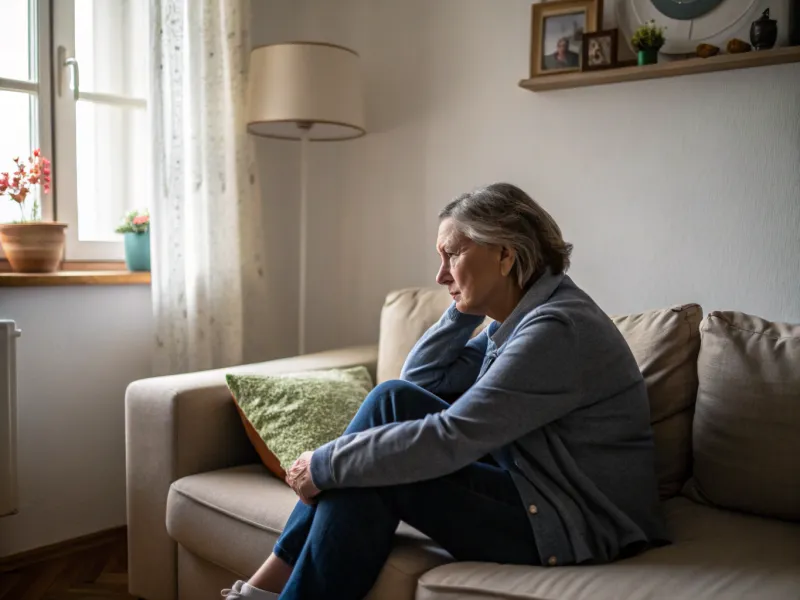
Emotional neglect is a subtle yet profound issue that can erode the foundation of a relationship over time. It occurs when one partner consistently fails to meet the other’s emotional needs, leading to feelings of loneliness and disconnection.
Over time, this emotional void grows, leaving you feeling unseen and unheard. It’s as if you’re living parallel lives without true connection.
Addressing emotional neglect requires courage and open dialogue. But when these efforts fall short, the sense of emotional starvation can be unbearable. For many, the choice to leave becomes a step toward finding a relationship where emotional needs are prioritized and fulfilled, rather than continually overlooked.
10. Loss of Intimacy

Intimacy, both physical and emotional, is a cornerstone of strong relationships. Yet over time, some couples experience a decline in this crucial aspect, leading to feelings of alienation and dissatisfaction.
As intimacy fades, it can create a void, leaving partners feeling more like roommates than lovers. This loss often results in frustration and unmet desires.
Reigniting intimacy requires both partners to actively engage and nurture their connection. If these efforts aren’t successful, the relationship may feel irreparably changed. In such cases, some couples opt to separate, seeking relationships where intimacy is once again a vibrant and vital part of their connection.
11. Mid-Life Crisis

A mid-life crisis often prompts individuals to reevaluate their lives, questioning past choices and future desires. This period of introspection can lead to significant changes, both personally and within a relationship.
This newfound drive for change can clash with a partner’s contentment, leading to tensions and disagreements.
While some couples navigate this transition together, understanding and supporting each other’s growth, others find themselves at a crossroads. When the desire for change outweighs the comfort of stability, separation can become a path to explore new possibilities and rediscover self-identity away from established relationship dynamics.
12. Retirement Shock

Retirement is a major life transition that can bring unexpected challenges. While it’s often anticipated as a period of relaxation and freedom, the sudden shift from structured work life to open-ended days can be jarring.
The abrupt change in routine can lead to boredom, restlessness, and even conflict as partners adjust to being around each other more often.
Navigating this shock requires open communication and a redefinition of roles and activities. However, if adaptation proves difficult, the strain may lead some couples to reconsider their relationship. For those unable to find harmony in this new phase, parting ways can be a solution to rediscover individual purpose and fulfillment.
13. Rediscovery of Personal Passions

As individuals age, they often find time to return to passions and hobbies that were set aside during the busy years of life. This rediscovery can be deeply fulfilling but may also create distance in a relationship if interests diverge.
This focus on personal growth and fulfillment can lead to less shared time, causing feelings of neglect or abandonment.
While pursuing personal passions is vital for happiness, balancing these interests within a relationship is crucial. When the gap becomes too wide, some couples decide to part, allowing each person to fully embrace their passions without guilt, seeking partners who share and support these newfound interests.
14. Boredom and Routine

Over time, relationships can fall into predictable patterns, leading to a sense of boredom and routine that stifles excitement and spontaneity. What once felt exhilarating may now feel mundane, creating dissatisfaction.
This lack of novelty can dampen enthusiasm and passion in the relationship, making each day feel like a repeat of the last.
Breaking free from routine requires effort and creativity from both partners to introduce new experiences and rekindle excitement. However, if these attempts fail, the monotony may become suffocating. For some, the desire for revitalization and new adventures leads them to seek change outside their current relationship.
15. Different Social Needs

Social needs can vary greatly between partners, especially as they age. One might crave interaction and connection with others, while the other prefers solitude or smaller, intimate gatherings.
Consider how these differences can impact a relationship. If one partner frequently seeks social activities and the other avoids them, it can lead to feelings of loneliness or pressure to conform to unwanted social norms.
Finding balance is essential, yet sometimes the gap is too broad. When social needs become a source of tension and dissatisfaction, some couples choose to separate, allowing each to pursue their preferred social lifestyle, free from the constraints of conflicting expectations.
16. Loss of Common Goals

Common goals often serve as the glue that binds relationships. However, as life progresses, these shared objectives may evolve, leading partners in different directions. As these goals are met or change, the sense of purpose that united you may diminish, leaving a void.
Establishing new common goals can reinvigorate a relationship, but if partners are unable to agree on a future path, the relationship may falter. Recognizing that their journeys no longer align, some couples decide to part, each pursuing their individual goals and aspirations without hindrance.
17. Unresolved Past Conflicts
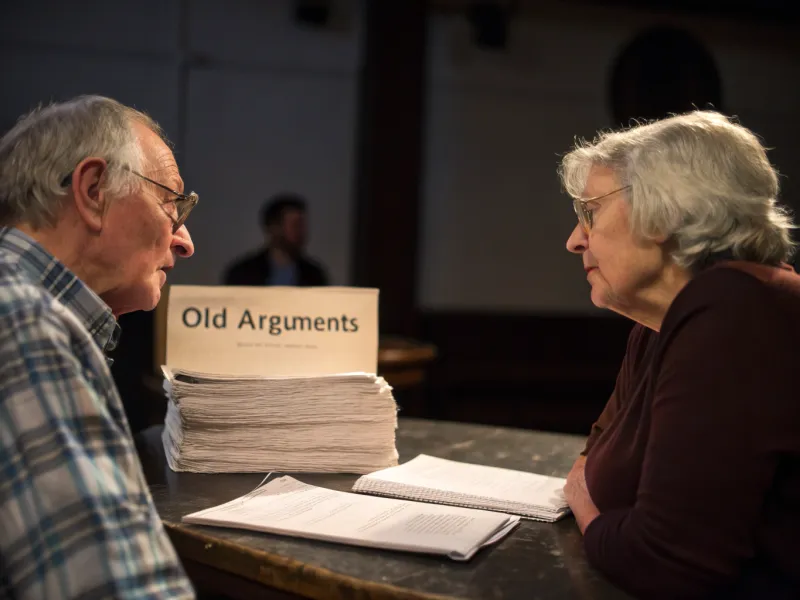
Unresolved conflicts from the past can linger like ghosts, haunting a relationship and preventing true closeness. These issues often resurface during moments of stress, reigniting old wounds.
This cycle can erode trust and intimacy, creating a barrier that distances partners emotionally and physically.
Addressing these conflicts requires patience and a willingness to forgive, but when resolution seems impossible, the relationship may stagnate. For some, the decision to part ways becomes a release, allowing them to heal and move forward unencumbered by the weight of unresolved issues.
18. Cultural or Value Differences

Cultural and value differences can subtly influence long-term relationships, sometimes becoming more pronounced with age. While these differences might have been manageable earlier, they can intensify as personal beliefs strengthen.
Finding common ground requires understanding and compromise, yet sometimes the divide is too vast. When cultural or value differences overshadow the relationship, some couples opt to separate, seeking partners who share their worldview and values, allowing for harmony and understanding.
19. Unresolved Emotional Trauma
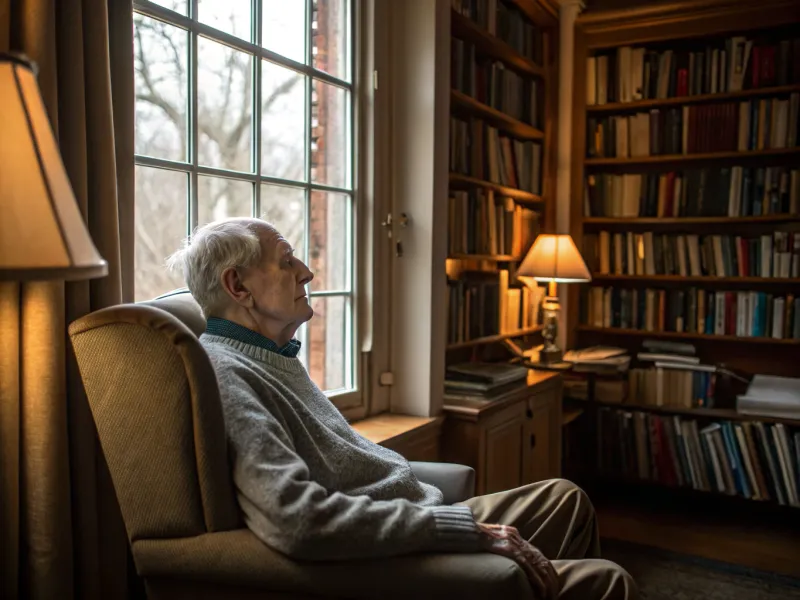
Past emotional trauma, when left unaddressed, can resurface later in life, affecting one’s ability to maintain a healthy relationship. This might include previous relationship issues, family conflicts, or personal losses that linger beneath the surface.
As individuals reflect on their past, these unresolved emotions can become more pronounced, influencing their current relationship dynamics. Seeking therapy or counseling can provide a path toward healing.
Encouraging open discussions about past experiences and feelings can sometimes prevent these issues from undermining the partnership.
20. Family Dynamics

Family dynamics can shift dramatically as couples age, influenced by relationships with adult children and grandchildren. These dynamics can add complexity to an already established relationship. The pressure to please everyone can become overwhelming, leading to stress and dissatisfaction.
Navigating these dynamics requires diplomacy and mutual understanding, but when family issues threaten the core relationship, some couples choose to separate. By doing so, they seek to find peace and focus on personal happiness, free from the constant tug-of-war of family expectations.
21. Addiction Issues

Addiction can be a heavy burden on any relationship, impacting trust, communication, and overall well-being. In older couples, these challenges can become more pronounced, especially if the issues have been long-standing.
The emotional toll can be exhausting, leading to feelings of helplessness and frustration for both partners.
Recovery is possible, but it requires commitment from both individuals. When attempts to overcome addiction fail, and it continues to strain the relationship, some couples decide to part ways. This decision often stems from the desire to protect oneself and seek a healthier, more stable environment.
22. Grief and Loss

Grief and loss are profound experiences that can reshape relationships. Whether it’s the death of a loved one or another significant loss, the emotional aftermath can be challenging to navigate.
One partner might seek solace in memories, while the other desires to move forward, leading to misunderstandings and emotional distance.
Supporting each other through loss is vital, yet sometimes the emotional burden becomes too great. When grief causes irreparable rifts, some couples choose to separate, allowing each to heal in their way, free from the added strain that differing grieving processes can place on the relationship.
23. Retirement Relocation

Relocating during retirement can be a dream for some and a nightmare for others. The prospect of moving to a new location, whether for climate, lifestyle, or proximity to family, can bring differing opinions to the forefront.
Reaching a compromise is essential, yet when relocation becomes a point of contention, some couples decide to part. This choice allows each to pursue their preferred lifestyle, free from the constraints of conflicting desires about where and how to spend their retirement years.
24. Lack of Adventure and Spontaneity

Adventure and spontaneity can infuse relationships with excitement and vitality. However, when these elements fade, a relationship may begin to feel stagnant.
Injecting spontaneity requires effort and a shared desire for novelty. When one partner consistently resists change, the relationship may suffer. For some, the decision to separate arises from a yearning to recapture the excitement and freedom that comes with pursuing new adventures independently.
25. Spiritual or Religious Differences

Spiritual and religious beliefs are deeply personal, yet they can create division in relationships if not aligned or respected. As people mature, these beliefs often solidify, sometimes leading to conflict. This divergence can impact lifestyle choices, celebrations, and even future planning.
Finding common ground requires open-mindedness and respect, but when beliefs become a source of tension, some couples opt to separate. This decision allows each to pursue their spiritual or religious journey without compromise, seeking partners who share and support their beliefs.
26. Unfulfilled Emotional Needs
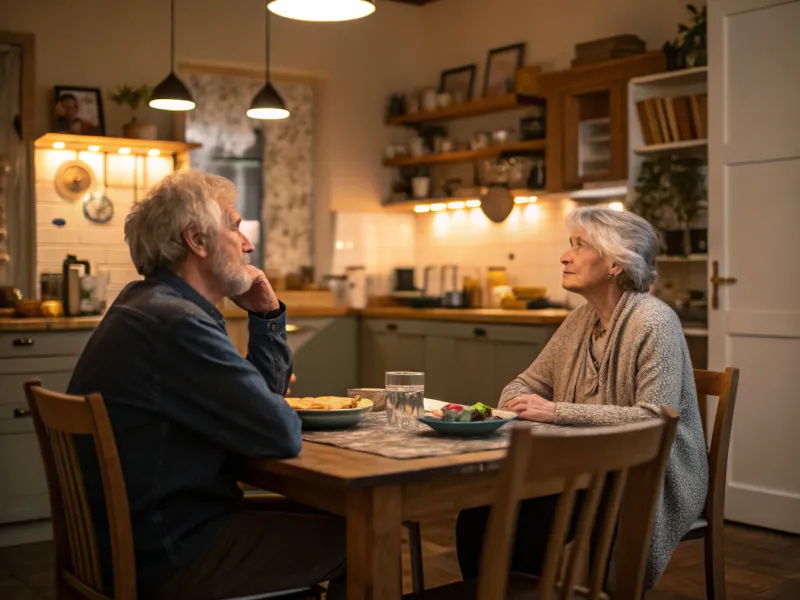
Many older couples discover that their emotional needs have shifted over time. This could be due to personal growth or changes in circumstances that create an emotional gap between partners.
In some cases, partners may find that their emotional needs are not communicated effectively. The result is a growing sense of disconnection, which can lead to the eventual breakdown of the relationship.
Acknowledging these needs and fostering open communication may help bridge the gap, though it requires effort and understanding from both sides.
27. Differences in Lifestyle Choices

Lifestyle choices can vary widely between partners, covering areas such as health, diet, exercise, and leisure activities. These differences can become more pronounced with age. This discord can strain even the most committed relationships.
Compromise and understanding are key, but when lifestyle choices become a significant point of contention, some couples choose to part ways. This separation allows each to live according to their preferences, seeking partnerships that align more closely with their lifestyle choices.
28. Lack of Gratitude and Acknowledgment

Over the years, it’s easy to take each other for granted. When everyday efforts go unnoticed—whether it’s preparing meals, managing finances, or offering emotional support—it creates a slow but steady erosion of connection.
Older couples often face the weight of decades of unacknowledged sacrifices. A partner might begin to feel invisible, as if their contributions no longer matter or were never truly appreciated.
Gratitude is a quiet glue that keeps relationships strong. When it fades, so does the sense of partnership. For some, the absence of acknowledgment becomes too loud to ignore, prompting them to seek a life where they feel seen, valued, and emotionally nourished again.
29. Fear of Wasting Remaining Years

As people age, their awareness of time becomes sharper. For some older adults, this leads to a brave and painful realization: they no longer want to spend their remaining years in an unfulfilling relationship.
It’s not about blame—it’s about a quiet yearning for joy, peace, or even self-discovery. The fear of staying stagnant can outweigh the fear of starting over, even after decades together.
This deep desire for meaning often drives late-life breakups. Rather than settling into quiet resignation, some choose to reclaim their autonomy and happiness, even if it means rewriting the story they’ve known for most of their lives.







